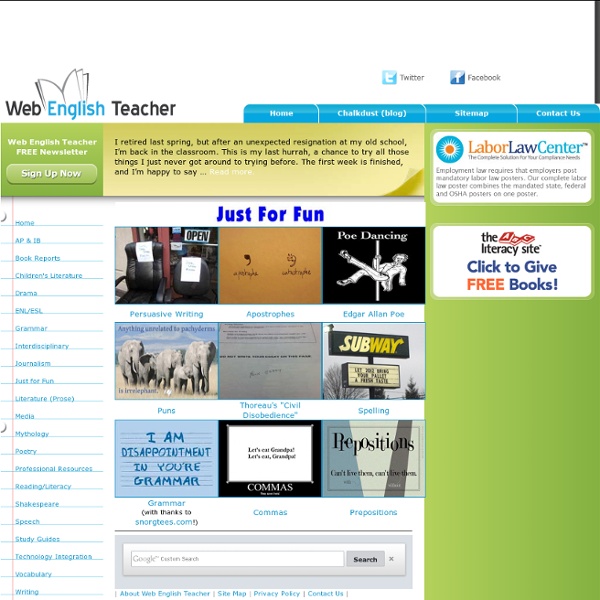



KIDS-Read - home Software Tools : NoodleBib A powerful, integrated platform for research & literacy NoodleTools is your instructional partner for differentiated teaching of literacy skills, critical analysis, sound reasoning, and collaborative group research. Features Integrated tools for note-taking, outlining, citation, document archiving/annotation, and collaborative research and writing. Teaching tool Teaches evaluation and analysis; not simply a "machine" that automates the process. Promotes ethical research Ease of use and expert advice gives students confidence to cite even the trickiest sources. Assessment for learning Students share working bibliographies and notecards with teachers for feedback. Convenient and up-to-date Web-based, saved work can be accessed from any computer, no software to install. Administrative support Real-time usage statistics and graphs. Need details?
Read.gov | The Library of Congress NoodleTools : MLA, APA, and Chicago/Turabian Bibliography Composer, Online Notecards Today's Most Popular Study Guides Top Research Paper Websites for Kids Fact Monster, from Pearson Education's Information Please, is an award-winning often-reviewed site for kids. It offers some good tools for doing research on a variety of topics. These tools include an encylopedia, dictionary, thesaurus and almanac. You can find info on the world, the U.S., people, science, math and money. Fact Monster has some other excellent research paper tools. Emily Dickinson Archive Common Core: Seven Opportunities to Transform English Language Arts Curriculum Brenda Overturf is a member of the International Reading Association's Board of Directors. You can reach her at boverturf[AT]reading[DOT]org. This is part two of a three-part series that examines the English Language Arts Common Core State Standards (CCSS). Part One introduced CCSS and provided context for those new to the standards. Part Two will review the key features that offer opportunities for educators to transform their teaching. In Part Three, we will take a look at how various states are starting to implement the standards. As educators start to understand and implement the CCSS, many are forming professional learning communities and statewide development teams, as well as regional and national consortiums of state representatives. 1) Interdisciplinary Learning 2) Argumentation When writing and reading, persuasion and critical literacy are key factors in how students read and respond to text. 3) Text Complexity 4) Text Exemplars 5) Close Reading of Text 6) Technology